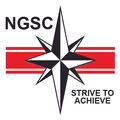ASSISTANT PRINCIPALS’ REPORT

ASSISTANT PRINCIPALS
Paul Dawson Bradley Headlam Sarah Bridges
Progress Reports
Students have settled well into the routine of school and their classes. It has been great to see students engaged in their learning and read the number of green entries on Compass.
Progress Reports are due to be released to students and families this week and we encourage families to celebrate the successful start to the school year. As a college, we acknowledge the efforts of all our students who are ‘striving to achieve’.
Student Managers will be in contact with those families/students who need additional support.
Progress Reports: Descriptors
Meets Attendance Requirement: will be assessed based on the following description: “Students are able to meet the minimum 95% attendance requirement of NGSC”. | |
Always | 95% or above |
Usually | 91 - 94% |
Sometimes | 85 - 90% |
Rarely | 80 - 84% |
Never | 79% or lower |
Progress In Learning: Student actively participates in school-based learning activities, Student is progressing towards meeting the expected level of the relevant outcome or standard.
NB: Teacher judgements are made in consideration with student attendance. | |
Always | Habitually, reliably, always |
Usually | Nearly always, likely to happen with occasional lapses |
Sometimes | Attempts are made but lack regular consistency |
Rarely | Attempts are made very occasionally; they are rarely noticeable |
Never (not assessed) | Not assessed: the student’s low attendance prevents the assessment of these skills or behaviours for this reporting period |
Participates in Learning: Regularly attends class and engages in the learning of key knowledge, skills and understandings. Maintains organised class notes, asks questions to enhance learning, works effectively in team situations. Displays resilience. NB: Teacher judgements are made in consideration with student attendance; | |
Always | Habitually, reliably, always |
Usually | Nearly always, likely to happen with occasional lapses |
Sometimes | Attempts are made but lack regular consistency |
Rarely | Attempts are made very occasionally; they are rarely noticeable |
Never | Not assessed: the student’s low attendance prevents the assessment of these skills or behaviours for this reporting period |
Demonstrates Preparation for Learning: Arrives on time, Prepared for class. Attentively waiting for teacher instructions. Catch-up work completed. Focussed and ready to learn, brings all necessary materials, including pencil case and a charged device. Completes set homework by the required date, catches up on missed work due to absence.
| |
Always | Habitually, reliably, always |
Usually | Nearly always, likely to happen with occasional lapses |
Sometimes | Attempts are made but lack regular consistency |
Rarely | Attempts are made very occasionally; they are rarely noticeable |
Never | Not assessed: the student’s low attendance prevents the assessment of these skills or behaviours for this reporting period |
Displays Respect for Learning: Actively and enthusiastically participates in a variety of learning opportunities offered in class. Treats self, others, staff and equipment/materials with respect, uses reports/assessments, criteria and rubrics, teacher and peer feedback, sample responses and demonstrations to make progress in his/her learning. Recognises that in order to improve, resilience is required. Is self-motivated and accountable for his/her/their learning. Actively seeks support from teachers to catch up following absence. | |
Always | Habitually, reliably, always |
Usually | Nearly always, likely to happen with occasional lapses. |
Sometimes | Attempts are made but lack regular consistency. |
Rarely | Attempts are made very occasionally; they are rarely noticeable. |
Never | Not assessed: the student’s low attendance prevents the assessment of these skills or behaviours for this reporting period. |
School Photos
School Photos: Friday 10 March 2023
Catch Up Day: Wednesday 29 March (Periods 5 and 6)
Please note the following:
- All students must be in full academic uniform. If students have PE they are required to bring their sports/PE uniform to change into
- Year 12: The Year 12 Group Photo (all year 12 students) will be taken at 8.45 am in the morning at the front of the school. Please ensure all year 12 students are at school by 8.45 am.
- The attached flyers provide families with the dates and details for the photo day.
- Families are able to view their photos before ordering but no orders can be placed online prior to the photo day.
- Families MUST register their details to receive a notification when images are available to view and order.
- Students will be provided with personalised flyers on photo day.
- These flyers will have step by step instructions for parents to go online with their NEW 2023 CODE and register their details.
- Once photos are ready to view and order, parents that have registered online will receive an email notification.
NAPLAN
Students in Year 7 and Year 9 will be completing NAPLAN testing from Wednesday 15 March- Monday 20 March. Catch Up Session will be held from 21-24 March. The tests are Writing, Reading, Conventions of Language and Numeracy. Parents/Carers are encouraged to support their children and read the information flyer on Compass.
INTERNATIONAL WOMEN’S DAY
Embrace Equity
The Year 12 Captains and the Soroptimist Scholarship recipients will be representing North Geelong Secondary College at the International Women’s Day Breakfast to be held at the Geelong Football Club. There will be a panel discussion from 3 speakers, including Rosie King, first female to act as a CEO at an elite level of AFL, Lyndsay Sharp, Director Geelong Football Club since 2021 and a yet to be decided AFLW player.
The college will also be hosting a morning tea to embrace equity, diversity, and inclusion. We embrace equity to forge harmony and unity and to drive success for all.
Year 12 Camp to Federation University in Ballarat
Year 12 Camp was held this year with all senior students attending camp in Ballarat. The students were incredibly enthusiastic in all activities and the smiles on their faces indicated they found the camp enjoyable. They could be relied on to help out when asked and were extremely respectful. A comment was made by the Ten Pin Bowling that it was the most respectful group they have had in the centre for years. The students spent time learning study and job-readiness skills from different presenters, including school-based ones. They met NGSC alumni who spoke about their journey and inspired us to ‘strive to achieve’. The main focus was about bonding with peers and teachers, to help ensure a positive final year of secondary schooling, and early indications are that this has been successful.
International Students
It is great to see the International Student program is now up to 12 students and building. We are due to have another 8 students in term 2 (provided visas are processed). We now have students from China, Vietnam, Thailand, and Iran with a mixture of relatives and school sourced homestays. Over the next couple of months, we will see the enrolment of many new International Students and we would like the NGSC to make them feel like they have a home away from home.
Managing technology at home.
The types and use of technology is growing rapidly, therefore the challenges of managing our children’s use are also substantial. It is hard to find the right balance with controlling their safety and leaving them free to encounter risk and challenge themselves.
Essentially what we need to do as parents is maintain communication with our children. If we can do this, we build trust in our actions and enable us to support them to be safer online. The purpose of this article is to help parents set up a safe home online environment that enables the opportunity to build communication without demands, rules and argument. By promoting this communication in the home you will be better placed to:
- Inform your children of potential risks.
- Support the management of sleep, nutrition, hydration, exercise, emotions and friendships.
- Be available to talk through challenges that arise.
- Get ahead of the game with online apps and media risks.
- Diffuse potential escalation of anger, frustration, and further ramifications.
Thus, also preventing the escalation to extreme outcomes that involve numerous others or serious offences that might involve consequences or police involvement. These are much more difficult to negotiate than a conversation with your child about their safety. It only takes a misplaced ‘like’ or a ‘Tik-Tok’ post that was unfunny to other people and our young people are in a social media avalanche of hatred and threats. Significantly confronting online, but then when face-to-face there is extremely heightened confusion, anger, frustration, anxiety and most likely an inability to negotiate through it through communication. Often the result can be an argument snowballing into a more negative outcome. We want to encourage parents to consider avenues to support their children through the challenges online and have come up with the following strategies that we believe is a positive platform to manage this effectively:
- COMMON SPACE Move the technology from their rooms to family spaces.
- CHECK-IN Know what they are doing online.
- CHECK-OUT How are they whilst online? Do they need a break/chat?
- COMMUNICATE Build on conversation skills, role model, help build trust.
- COMPROMISE Work out the give and take for what is important.
Homework: Always prepared for assessment
An occasional report from parents is the statement “there isn’t any homework” or the student might say “we never get any homework”...This certainly is not the case!
Homework can comprise any of the following:
- Revision of terms
- Practice of skills
- Pre reading
- Reading notes
- Reading the chapter
- Emailing questions for teacher
- Compiling questions for clarity
There is always a test or assessment on the way, therefore students should be doing these things on a regular basis. No excuses!
Parents can:
- Ask to see the Google Classroom for upcoming tasks.
- Observe Compass to see which Learning Tasks are due and when.
- Email teachers for any homework.
- Point their children to the homework advice listed above and then guide them towards an appropriate amount of time (see below) for their year level.
Other advice:
How much homework?
Year level x 10 mins per subject per week is a good guide. So, Year 7 students should be doing 70 mins per subject per week.
By doing this consistently there is no need to re-learn content prior to a test and therefore a student can revise effectively.





